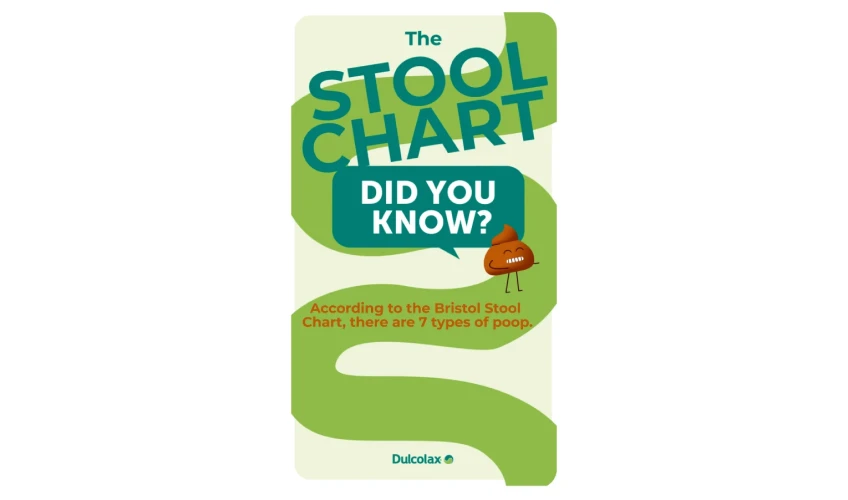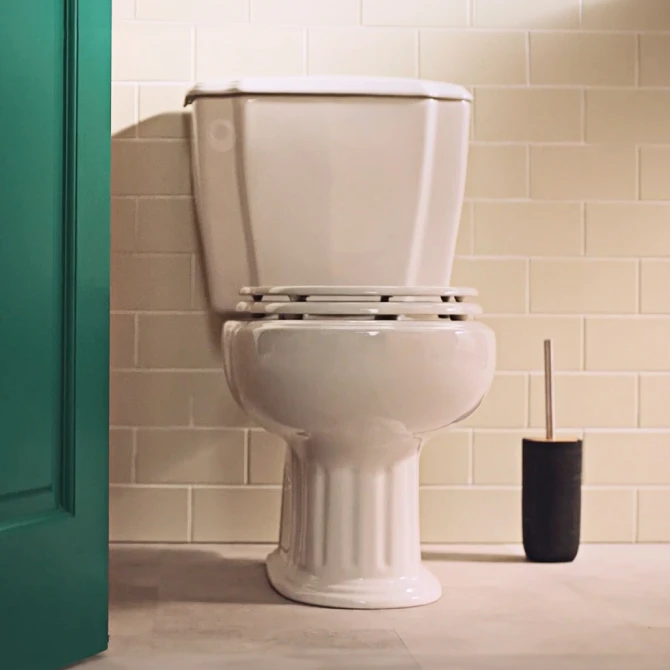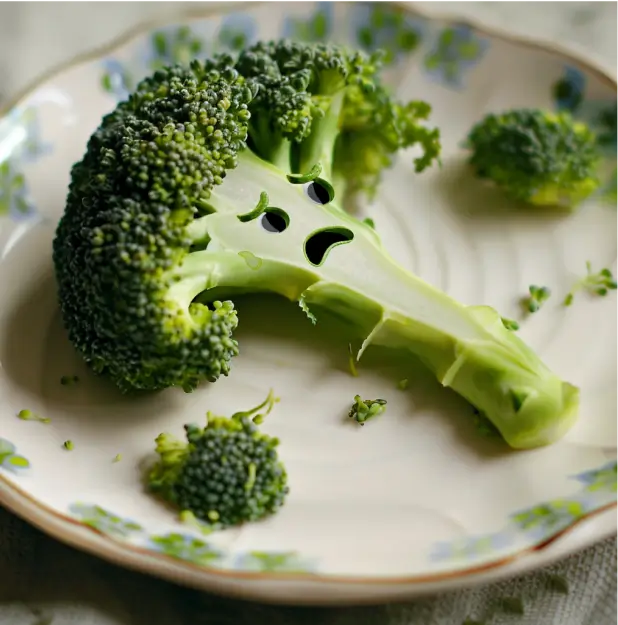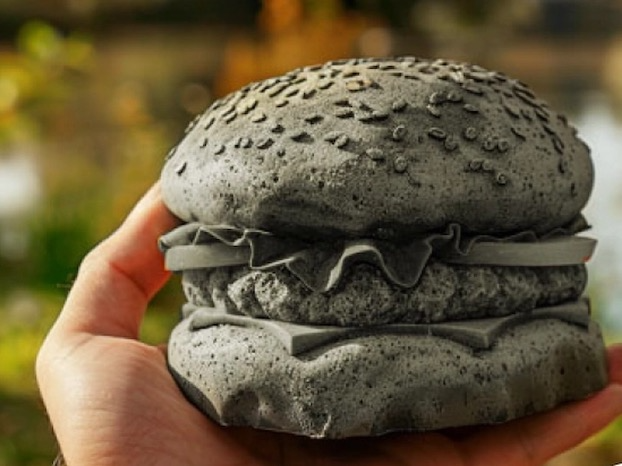
Constipation, stool and bowel movement: what is the connection?
Like many things in life, it’s not unusual to take our daily bowel movement for granted. Constipation, however, is a really common problem for many of us.25 We talk very little about our digestive habits with others, as we tend to view our inner workings as a most intimate personal issue. In fact, questions about our toilet habits can leave some of us more tongue-tied than Maggie Simpson.
As a result of this communication gap, our knowledge can be limited. We may even be unaware of the existence of safe and effective alternatives that could help to normalize our bowel movements.
Taking time to understand your digestive habits is a worthy investment to live a better, healthier life. Let’s begin by understanding what defines a normal bowel movement.
What does it mean if you're going too often or not enough?
So, how many times should you poop a day? As a general rule, if you go more than three times per day, you probably have diarrhea. If you go less than three times per week, you could be constipated.8-9,11
Bowel movements vary widely between individuals, so the subjective perception of what constitutes “normal” also varies from one person to the next. Remember to monitor your pooping patterns and notice changes. When your pooping habits suddenly change, it can be an early warning sign that your doctor should be consulted.8-9,11
Let's explain both conditions in more detail.
Diarrhea
Diarrhea is described as too frequent soft bowel movements that are urgent or difficult to hold.10
There are two types of diarrhea: acute and chronic. Viral, bacterial, and parasitic infections are the most common causes of acute diarrhea. Chronic diarrhea, however, can be caused by many digestive disorders. If you experience diarrhea frequently, see a healthcare professional.14
Constipation
The medical community defines constipation as a condition where the daily number of stools is low compared to the "normal frequency”.
Individuals who are constipated describe their condition as the unsatisfactory evacuation of stools, more rarely than they would like. Stools are also typically of small volume, hard textured, and difficult to pass.10
Constipation affects approximately 15% of the population and is often self-diagnosed and self-managed. Multiple factors can cause it, such as stress, an unbalanced diet, not drinking enough water, lack of exercise, or medication side effects.11
Poop: What’s normal?
A bowel movement occurs at the end of digestion, which begins with eating food and ends with the excretion of solid waste, commonly known as stool.2

Digestive System
Bowel movements vary by individual, as will the poop produced as a result of it. To determine whether your bowel movements are normal, you need to know more about your poop.
Shape
Bristol Stool Form (BSF) is a tool that categorizes poop into seven types based on its appearance and associated with colonic transit times.4
Firmness or consistency
How firm should your poop be? The BSF breaks it down as follows:21
- Types 1-2: Overcooked! These consistencies may indicate constipation and painful or difficult bowel movements.6
- Types 3-4: Nailed it! These indicate ideal poop firmness6
- Type 5: Undercooked! Type 5 may indicate a lack of fiber, which helps to soak up fluid and firm things up.
- Types 6-7: Super Undercooked! Type 6 and 7 stool is diarrheal and may indicate digestive problems.6
What causes abnormal bowel movement?
Many factors can lead to a break in your normal bowel movement cycle. These include medical conditions, some medications and supplements, and lifestyle factors. Let’s explore some of these potential causes below.
Medical conditions
Some medical conditions manifest as abnormal digestive movements. These may include diabetes, hypothyroidism, and irritable bowel syndrome.16
Some medical conditions may cause constipation specifically, including:29
- celiac disease
- Parkinson’s
- spinal cord or brain injuries
- Inflammation due to diverticular disease or proctitis
- anorectal blockages or tumors
If you have frequent abnormal bowel movements consult a doctor, since it could be a sign of an underlying health issue.
Medication and supplements
The following medications and supplements may cause constipations, but not limited too:
- aluminum and calcium containing antacids
- calcium channel blockers
- diuretics
- narcotic pain medications
- some depression medications
- iron supplements
- seizure medications (anticonvulsants)
Lifestyle factors and nutrition
Several lifestyle and nutritional factors may also have an effect on your bowel movements. These below may cause constipation:29
- not enough fiber in the diet
- a lack of physical activity
- dehydration
- stress related to travel
- ignoring the urge to poop
- sudden changes to your diet
- getting older
- pregnancy
Tips for more comfortable bowel movement
Increase fiber intake
Increasing fiber consumption is one of the first alternatives to consider when suffering from constipation. By reducing intestinal transit time and increasing stool bulk, fiber helps your body eliminate waste more quickly.23,26 You should increase your fiber intake gradually to avoid uncomfortable reactions.18
Drink more water
Water is essential for the digestive system to work correctly, because it transports nutrients to cells and removes waste.24 Make sure you are drinking the correct amount of water as part of your diet.17
Be more active
Walking, running, and resistance exercises reduce intestinal transit time, which means that the food you eat is eliminated quicker, whereas physical inactivity increases it.18
Change your bathroom posture
Constipation may also be affected by your position when pooping. Squatting provides an ideal posture.25
Monitor your bowel movements
Frequent and satisfactory bowel movements allow you to live a full life. Pay attention to your bowel movements to recognize changes in your digestion, the gut tends to be more active in the morning and after meals.28 Don’t resist or fight the urge to go to the bathroom. If you need to go, you need to go
Laxatives
If you are experiencing occasional constipation, and the above tips don’t help, laxatives are also an option. Laxatives are very safe when used as directed.
There are several types of laxatives, if you have doubts on what would be the best option for you, discuss with a doctor or pharmacist. Dulcolax is one great example of a laxative with 70 years in the market. Dulcolax increases bowel movement frequency by relieving constipation, which helps reduce uncomfortable symptoms of tummy trouble, such as bloating.
Learn more about the different types of laxatives here.
A full range of Dulcolax products is available here, including tablets, suppositories, soft chews, and liquid.
* Works in 30 minutes to 6 hours
Disclaimer:
Partly generated by Gen AI
Sources
- Caroppo E, Mazza M, Sannella A, Marano G, Avallone C, Claro AE, Janiri D, Moccia L, Janiri L, Sani G. Will Nothing Be the Same Again?: Changes in Lifestyle during COVID-19 Pandemic and Consequences on Mental Health. International Journal of Environmental Research and Public Health. 2021; 18(16):8433. https://doi.org/10.3390/ijerph18168433
- Bowel movements | BM (2015) MedlinePlus. U.S. National Library of Medicine. Available at: https://medlineplus.gov/bowelmovement.html (Accessed: December 5, 2022).
- Rose C, Parker A, Jefferson B, Cartmell E. The Characterization of Feces and Urine: A Review of the Literature to Inform Advanced Treatment Technology. Crit Rev Environ Sci Technol. 2015 Sep 2;45(17):1827-1879. doi: 10.1080/10643389.2014.1000761. PMID: 26246784; PMCID: PMC4500995.
- Camilleri, M., Ford, A., Mawe, G. et al. Chronic constipation. Nat Rev Dis Primers 3, 17095 (2017). https://doi.org/10.1038/nrdp.2017.95
- Poitras, P. et al. (2022). The Colon. In: Poitras, P., Bilodeau, M., Bouin, M., Ghia, JE. (eds) The Digestive System: From Basic Sciences to Clinical Practice. Springer, Cham. https://doi.org/10.1007/978-3-030-98381-9_4
- Lee, C. (2022) What your poop type and color says about you, Cleveland Clinic. Cleveland Clinic. Available at: https://health.clevelandclinic.org/healthy-poop-shape-type-color/ (Accessed: December 5, 2022).
- Ahuja, N. (2020) The Scoop on Poop: What Does Your Poop Say About Your Health?, Pennmedicine.org. Penn Medicine. Available at: https://www.pennmedicine.org/updates/blogs/health-and-wellness/2019/march/poop (Accessed: December 5, 2022).
- American College of Gastroenterology (2022) Digestive health tips, American College of Gastroenterology. American College of Gastroenterology. Available at: https://gi.org/topics/digestive-health-tips/ (Accessed: December 5, 2022).
- Poitras, P., Bouin, M., Faure, C., Dapoigny, M. (2022). Constipation. In: Poitras, P., Bilodeau, M., Bouin, M., Ghia, JE. (eds) The Digestive System: From Basic Sciences to Clinical Practice. Springer, Cham. https://doi.org/10.1007/978-3-030-98381-9_15
- Poitras, P. (2022). Diarrhea. In: Poitras, P., Bilodeau, M., Bouin, M., Ghia, JE. (eds) The Digestive System: From Basic Sciences to Clinical Practice. Springer, Cham. https://doi.org/10.1007/978-3-030-98381-9_13
- Rao, Satish S.C. MD, PhD1; Lacy, Brian E. MD, PhD2; Emmanuel, Anton MD3; Müller-Lissner, Stefan MD4; Pohl, Daniel MD5; Quigley, Eamonn M.M. MD6; Whorwell, Peter MD, PhD7. Recognizing and Defining Occasional Constipation: Expert Consensus Recommendations. The American Journal of Gastroenterology: November 2022 - Volume 117 - Issue 11 - p 1753-1758 doi: 10.14309/ajg.0000000000001945
- Yamada, M., Sekine, M., Tatsuse, T. et al. Lifestyle, psychological stress, and incidence of adolescent constipation: results from the Toyama birth cohort study. BMC Public Health 21, 47 (2021).https://doi.org/10.1186/s12889-020-10044-5
- Serra J, Pohl D, Azpiroz F, Chiarioni G, Ducrotté P, Gourcerol G, Hungin APS, Layer P, Mendive JM, Pfeifer J, Rogler G, Scott SM, Simrén M, Whorwell P; Functional Constipation Guidelines Working Group. European society of neurogastroenterology and motility guidelines on functional constipation in adults. Neurogastroenterol Motil. 2020 Feb;32(2):e13762. doi: 10.1111/nmo.13762. Epub 2019 Nov 22. PMID: 31756783.
- Poitras, P. (2022). Diarrhea. In: Poitras, P., Bilodeau, M., Bouin, M., Ghia, JE. (eds) The Digestive System: From Basic Sciences to Clinical Practice. Springer, Cham. https://doi.org/10.1007/978-3-030-98381-9_13
- Vriesman MH, Koppen IJN, Camilleri M, Di Lorenzo C, Benninga MA. Management of functional constipation in children and adults. Nat Rev Gastroenterol Hepatol. 2020 Jan;17(1):21-39. doi: 10.1038/s41575-019-0222-y. Epub 2019 Nov 5. PMID: 31690829.
- Diaz S, Bittar K, Mendez MD. Constipation. [Updated 2022 Jul 25]. In: StatPearls [Internet]. Treasure Island (FL): StatPearls Publishing; 2022 Jan-. Available from: https://www.ncbi.nlm.nih.gov/books/NBK513291/
- American College of Gastroenterology (2022) Digestive health tips, American College of Gastroenterology. American College of Gastroenterology. Available at: https://gi.org/topics/digestive-health-tips/ (Accessed: December 5, 2022).
- Serra J, Mascort-Roca J, Marzo-Castillejo M, Aros SD, Ferrándiz Santos J, Rey Diaz Rubio E, Mearin Manrique F. Clinical practice guidelines for the management of constipation in adults. Part 2: Diagnosis and treatment. Gastroenterol Hepatol. 2017 Apr;40(4):303-316. English, Spanish. doi: 10.1016/j.gastrohep.2016.02.007. Epub 2016 Apr 2. PMID: 27045854.
- Šola, K.F., Vladimir-Knežević, S., Hrabač, P. et al. The effect of multistrain probiotics on functional constipation in the elderly: a randomized controlled trial. Eur J Clin Nutr 76, 1675–1681 (2022). https://doi.org/10.1038/s41430-022-01189-0
- Okawa, Y., Fukudo, S. & Sanada, H. Specific foods can reduce symptoms of irritable bowel syndrome and functional constipation: a review. BioPsychoSocial Med 13, 10 (2019). https://doi.org/10.1186/s13030-019-0152-5
- Blake, M.R., Raker, J.M. and Whelan, K. (2016), Validity and reliability of the Bristol Stool Form Scale in healthy adults and patients with diarrhoea-predominant irritable bowel syndrome. Aliment Pharmacol Ther, 44: 693-703. https://doi.org/10.1111/apt.13746
- Khanna, S. (2020) “Chapter 4,” in Mayo Clinic on Digestive Health: How to prevent and treat common stomach and gut problems. Mayo Clinic Press.
- Firth, John, Christopher Conlon, and Timothy Cox (eds), Oxford Textbook of Medicine, 6 edn (Oxford, 2020; online edn, Oxford Academic, 1 Jan. 2020), https://doi.org/10.1093/med/9780198746690.001.0001, accessed 9 Dec. 2022.
- Jéquier E, Constant F. Water as an essential nutrient: the physiological basis of hydration. Eur J Clin Nutr. 2010 Feb;64(2):115-23. doi: 10.1038/ejcn.2009.111. Epub 2009 Sep 2. PMID: 19724292.
- Sura, S.P., Christie, J. (2014). Chronic Constipation. In: Rose, MD, MSEd, S. (eds) Constipation. Springer, New York, NY. https://doi.org/10.1007/978-1-4939-0332-0_3
- Bae SH. Diets for constipation. Pediatr Gastroenterol Hepatol Nutr. 2014 Dec;17(4):203-8. doi: 10.5223/pghn.2014.17.4.203. Epub 2014 Dec 31. PMID: 25587519; PMCID: PMC4291444.
- Monda, V. et al. (2017). Exercise Modifies the Gut Microbiota with Positive Health Effects. doi: 10.1155/2017/3831972 https://www.ncbi.nlm.nih.gov/pmc/articles/PMC5357536/
- Duboc H, Coffin B, Siproudhis L. Disruption of Circadian Rhythms and Gut Motility: An Overview of Underlying Mechanisms and Associated Pathologies. J Clin Gastroenterol. 2020 May/Jun;54(5):405-414. doi: 10.1097/MCG.0000000000001333. PMID: 32134798; PMCID: PMC7147411. https://www.ncbi.nlm.nih.gov/pmc/articles/PMC7147411/
- Symptoms & Causes of Constipation. https://www.niddk.nih.gov/health-information/digestive-diseases/constipation/symptoms-causes
.webp)






.webp)

.webp)
.webp)






.webp)